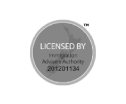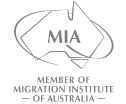So, you’re contemplating a move Down Under? Australia beckons with its thriving economy, stunning landscapes, and enviable lifestyle. But before you pack your bags, let’s tackle a crucial question that weighs heavily on the minds of many aspiring migrants: How much “show money” do you really need for an Australian visa?
Navigating the financial requirements of Australian visas can be tricky. It’s not just about having the funds; it’s about proving you can support yourself and your family in those crucial early months. This article provides a clear, concise, and practical guide to understanding the “show money” requirements, ensuring you’re well-prepared for your Australian adventure. Let’s get started.
1. Understanding the “Show Money” Concept
The Australian government requires visa applicants to demonstrate sufficient financial capacity to cover their initial settlement costs. This “show money” isn’t explicitly defined as a fixed amount for most skilled visas, but rather an assessment of your ability to manage financially upon arrival. Think of it as proving you won’t become a burden on the Australian social security system immediately. For example, if you are obtaining a Skilled Independent Visa (Subclass 189), you’ll need to demonstrate that you have sufficient funds to live comfortably initially.
2. The “Officially Recommended” Amounts (and Why They’re Misleading)
The Department of Home Affairs offers guidance, but it’s often vague. While they might suggest a certain amount, it’s crucial to understand this is a minimum guideline, not a magic number. As a general guide, for a single applicant, the government might suggest having around AUD 20,000 to AUD 30,000 available. For families, this number increases significantly. However, this figure doesn’t fully capture the realities of settling in Australia, especially in expensive cities like Sydney or Melbourne.
3. Factors That Determine Your Actual “Show Money” Needs
Don’t rely solely on the minimum guidelines. Several factors influence how much money you will realistically need:
- Family Size: Obviously, a larger family requires more funds to cover living expenses, accommodation, and other essential needs.
- Location: Your chosen city dramatically impacts your cost of living. Sydney and Melbourne are notoriously expensive, while Brisbane or Adelaide might offer more affordable options. Researching the cost of living in specific Australian cities is essential.
- Visa Type: Some visas, especially those requiring state nomination, may have specific financial requirements. Always check the specific criteria for your visa subclass. For instance, individuals applying for the Subclass 491 visa are often asked to prove they can financially support themselves in a regional area.
- Job Prospects: Having a job offer lined up significantly reduces the “show money” burden. A confirmed job provides immediate income and reduces the need to rely solely on your savings. However, even with a job, having a financial buffer is crucial. If you are looking for jobs, consider using Indeed.com.au to assess job availability and salary ranges.
- Lifestyle: Your desired lifestyle will significantly impact your financial needs. If you plan to rent a luxury apartment, dine out frequently, and engage in extensive travel, you’ll need considerably more funds than someone opting for a more modest lifestyle.
4. Acceptable Forms of “Show Money” and Documentation
The Department of Home Affairs requires clear and verifiable proof of your financial capacity. Acceptable forms of evidence include:
- Bank Statements: Provide several months of bank statements demonstrating a consistent balance and sufficient funds. Make sure your name is clearly visible.
- Savings Account Statements: Statements from savings accounts, fixed deposits, or other investment accounts can be used as evidence.
- Investment Portfolios: Documentation of stocks, bonds, or other investments, with a clear valuation, can be presented. However, be prepared to explain how easily these assets can be converted to cash if needed.
- Loan Approvals: While not ideal, a pre-approved loan can demonstrate access to funds. However, relying solely on loans is generally discouraged.
- Gift Deeds: If you’re receiving financial assistance from family or friends, provide a formal gift deed outlining the amount and the giver’s intention. You may also need to provide evidence of the giver’s financial capacity.
Importantly, you must have immediate access to the funds. It is vital to ensure funds are genuinely available and that you can readily access them once you arrive.
5. Beyond “Show Money”: Budgeting for the First Few Months
Don’t solely focus on the minimum “show money” requirement. Develop a detailed budget for your first few months in Australia. Consider these expenses:
- Accommodation: Rental bond (typically 4 weeks’ rent), advance rent, and costs associated with setting up your home.
- Transportation: Costs associated with purchasing a car, public transport, or other transportation needs.
- Living Expenses: Groceries, utilities (electricity, gas, water), internet, phone, and other day-to-day expenses.
- Healthcare: While Australia has a public healthcare system (Medicare), you may need private health insurance, especially initially.
- Education: School fees, uniforms, and other educational expenses for your children.
- Emergency Fund: Always have a contingency fund for unexpected expenses.
For example, rental properties often have bond requirements, so it’s worth understanding how Australian rental bonds work.
Conclusion
Calculating the “show money” needed for your Australian visa is more than just meeting a minimum threshold. It’s about realistic planning and ensuring a smooth transition to your new life. By understanding the factors that influence your financial needs, providing clear documentation, and developing a comprehensive budget, you can confidently navigate the visa process and start your Australian journey on a solid financial footing. Being prepared and having a financial buffer allows you to focus on settling in and embracing everything Australia has to offer. Good luck with your move!










